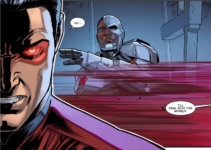As a defender that the game could do much better in terms of narrative, the concept always fascinated me: dedicate so much effort to the story that the mechanics passed into the background. It was, in the end, a milestone in videogames, because the gameplay had always prevailed over anything.
The problem, perhaps, comes in the repetition . After the nth walking simulator, the surprise factor is gradually lost and the genre itself is trying to reinvent itself, while maintaining its own rules that give it its identity.
And Blackwood Crossing is teetering between these factors. Try to bring some interaction clumsily while telling a story that needs little mechanics.
The result is that the player is constantly faced with a series of insipid tasks in order to access a small piece of information that keeps him maintaining interest in the plot.
A child of overflowing imagination
A story that is nevertheless captivating, that introduces us to Finn , a child who takes refuge in an overflowing imagination to escape the problems of his real life, caused primarily by the situation of his family and especially, with the death of his parents.
Unfortunately, Blackwood Crossing wants to be more than it is . We must give it credit, because we do not usually see characters on screen in this subgenre, because it is difficult to encourage them, and the lack of financial resources of the studios that bet on this way of making video games. However, both Scarlett’s movement in the first person and the small
puzzles and interactions we can make on stage have been neglected . Not only is it inconvenient to pick up and manipulate objects, but the puzzles, if we can call them that, are not the most inspired we have seen. From collecting some pictures to guess a password to search for objects on the stage guiding us through the classic game of “hot and cold”.
It is an exercise with good intentions, but irregular results
It is then small fragments of interactivity that the designer has arranged to avoid that feeling that in your game, you play little. But the illusion, far from being broken, consolidates more, because the walking simulator is solidly based on its narrative bases and n
But as we say, when it works, Blackwood Crossingmakes us share its magic, placing us in a preferred seat where we contemplate the subconscious child distressed and affected by the problems of reality. When the overflowing imagination that we
have harvested throughout our first and ignorant years is confronted for the first time with the harshness of death and loss. However, the idea, as suggestive as it turns out, works better in the head of the player hungry for these stories with these conflicts, than what PaperSeven is able to end up reflecting in the videogame, even more so when you have to face the rules of the subgenre and the limitations of the independent game.
Do not get me wrong: I think the walking simulator still has a lot to offer, but you need to move forward if you want to stay fresh. And it can be done without adding puzzles or guns. But in the case of Blackwood Crossing, it is an exercise with good int
entions, but irregular results. If you are able to ignore their failures, the story of love and loss of Finn and Scarlett seems endearing and worthy of being told from the unique perspective of a video game, one where the fluidity of the child’s imagination is captured and covered with infinite possibilities, although these have not been exploited to the maximum in the work.


